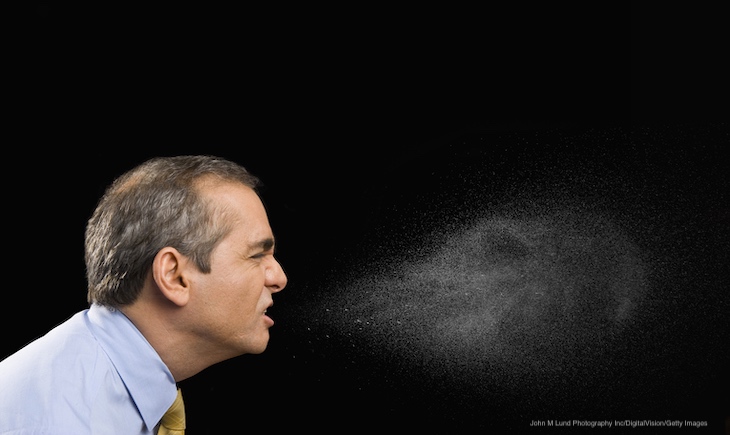The coronavirus outbreak, which has been characterized as a pandemic by the World Health Organization, has highlighted an issue in the United States. Experts are telling people to reduce social interaction with others, called social distancing, to reduce the rate of transmission. But what if your job requires you to be around people? And what if you are paid hourly and can’t afford to take time off? That’s an issue for many workers, especially those in the food industry. Because of this pandemic, restaurant unpaid sick leave policies are changing now.

There is no federal regulation mandating paid sick leave in this country. Sick leave is set by corporations and some states. And since 1 in 4 Americans, or 32,000,000 people, have no sick leave, they are often unwilling or simply unable to stay home from work when they are sick. It’s even worse for low wage workers: 7 in 10 have no paid sick leave.
What experts want to accomplish is enough social distancing to flatten the outbreak curve. That means that if we can reduce the arc of transmission, we can stay below the critical mass point when hospitals become overwhelmed and medical care starts to collapse, which is happening in Italy.
That’s why corporations and organizations from Disneyland to the NBA to college tournaments to St. Patrick’s Day parades to cruise lines to schools are closing for the next few weeks or months. And some restaurants and chain stores are joining in. Walmart, McDonald’s, and Olive Garden are among those now offering paid sick leave to their employees. A Walmart employee in Kentucky tested positive for the virus, which may have prompted that company to reevaluate its position.
When it comes to food poisoning, restaurants are the main source of multistate outbreaks. It’s also important to point out that these outbreaks are not the fault of employees. Many of those outbreaks are caused by sick workers. It just makes sense that ill restaurant and grocery store workers, from food handlers to chefs, should stay home in this pandemic.
Generosity of leave varies between companies. Darden Restaurants, which include Olive Garden, will offer 40 hours of paid sick leave. McDonald’s, which already has five days of paid sick leave, is offering 14 paid days off if an employee has been diagnosed with coronavirus and are required to be in quarantine. Walmart won’t penalize workers if they have coronavirus and are quarantined. Two weeks of sick pay will be offered, with “additional pay replacement” up to 26 weeks.
Progressive Grocer has tracked sick leave for more grocery store chains. Kroger is offering financial support from its employee assistance program to any employees who are quarantined. Trader Joe’s is reimbursing employees for time off for illness. Wegmans has “enhanced its short term disability leave.” Amazon is offering paid sick leave to all workers affected by coronavirus. Target is offering 14 days of paid time off for ill employees, and is waiving its absence policy for employees who must stay home to take care of children. And Instacart is offering up to 14 days of pay for employees sickened with COVID-19. Shake Shack and Starbucks already offer sick leave.
Some states are also guaranteeing paid medical leave. Washington state will guarantee up to 12 weeks of paid medical leave starting this year. Pew Research lists the states with mandated paid sick leave: Oregon, Nevada, California, Arizona, Michigan, Vermont, Maine, Massachusetts, Rhode Island, Connecticut, New Jersey, Maryland, and Washington D.C, in addition to Washington. We’ll see if this pandemic prompts more states, corporations, and the federal government to update their policies.




